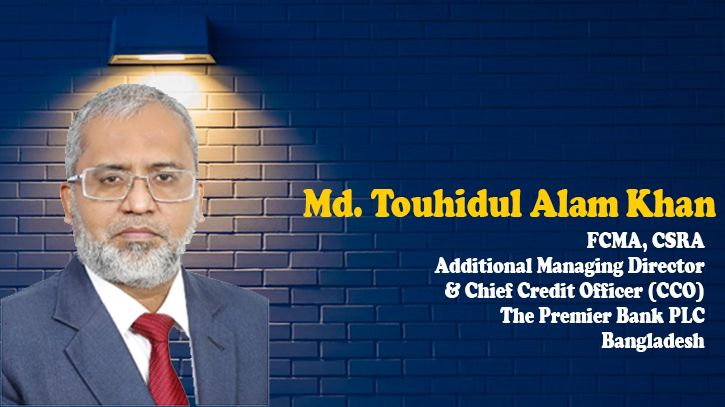
Photo : Messenger
The Islamic banking industry has witnessed substantial growth in recent years, but it is currently grappling with a critical challenge: the scarcity of professionals who possess a profound understanding of Shariah principles, financial auditing, and accounting. This article explores strategies to effectively address this issue by leveraging professional qualifications, specifically the Certified Islamic Professional Accountancy (CIPA), the Certified Shari’ah Advisor and Auditor (CSAA), and other relevant programs offered by institutions worldwide.
The talent gap: The deficiency of qualified professionals in the Islamic banking sector can be traced back to the industry's relatively recent emergence. Although Islamic banking has been in existence for about four decades, it experienced significant growth primarily in the past decade, creating a noticeable gap between the demand for skilled professionals and the available talent pool.
Addressing the talent shortage: To comprehensively tackle the talent gap, a multifaceted approach to human capital development is indispensable. This approach should encompass various aspects, including attracting, developing, and retaining talent at all career levels, spanning from pre-employment to leadership positions.
Leveraging professional qualifications: Professional qualifications like CIPA and CSAA from the Accounting and Auditing Organization for Islamic Financial Institutions (AAOIFI) play a pivotal role in bridging the knowledge and skill gap within the Islamic banking industry. CIPA equips professionals with an in-depth understanding of Islamic finance, accounting, and auditing principles, enabling them to navigate the complexities of Islamic banking while adhering to Shariah principles. On the other hand, CSAA provides the expertise necessary to serve as advisors and auditors in the Islamic finance sector, ensuring compliance with Shariah principles and upholding transparency and integrity in financial operations.
Global success stories: Malaysia serves as a remarkable example of significant progress in addressing the talent gap within the Islamic banking industry. The country has evolved into a global leader in nurturing Islamic finance talent, with institutions such as the International Centre for Education in Islamic Finance (INCEIF) and the International Shariah Research Academy for Islamic Finance (ISRA) gaining recognition for producing experts crucial to the growth of the industry. These institutions often complement their educational programs with qualifications like CIPA and CSAA from AAOIFI.
Diverse educational institutions: Numerous educational institutions worldwide offer a wide array of programs and certifications in Islamic banking and finance. These include universities, business schools, and professional organizations that provide graduate programs, certificates, and courses designed to equip students and professionals with a deep understanding of Islamic finance principles, practices, and Shariah compliance. Notable examples encompass universities in Malaysia, the UK, and the Middle East, as well as specialized institutions like INCEIF and ISRA.
Collaboration for success: Addressing the talent shortage extends beyond the financial services sector. Collaborating with various business communities, including legal professionals, government officials, and IT solution providers, can play a pivotal role in fostering a more robust Islamic banking industry.
The path forward: While the Islamic banking industry still faces challenges in achieving a balance between the supply and demand of talent, dedicated institutions like INCEIF and various Islamic banking faculties within tertiary institutions are making strides toward closing the gap.
Bangladesh's Context: In 1983, Bangladesh embraced Shari’ah banking, which has since experienced remarkable growth due to the demand for interest-free financial transactions. The country now hosts ten full-fledged Islamic banks with an extensive network of branches. Additionally, several conventional commercial banks in Bangladesh provide Islamic financial services through Islamic banking branches and windows. Achieving professionalism in the Islamic banking sector can be facilitated through international courses offered by organizations like AAOIFI, such as the Certified Islamic Professional Accountant (CIPA) and Certified Shariah Adviser and Auditor (CSAA) programs. Moreover, local certifications provided by the Central Shariah Board for Islamic Banks of Bangladesh (CSBIB), such as the Certification Course on Islamic Banking & Finance (CIBF), and the Bangladesh Institute of Bank Management (BIBM) offering the Certified Islamic Banking & Finance Professional (CIBFP) program, can serve as viable pathways. Currently, there are approximately 350 AAOIFI fellows in Bangladesh who have completed CIPA and/or CSAA programs, and they are employed by various banks and financial institutions.
Farhadur Reza, a Certified Shari’ah Advisor and Auditor (CSAA) working in the Islamic banking sector, stressed the escalating demand for Islamic banking professionals. This growing demand can be attributed to the expanding scope of activities within the sector, highlighting the pressing need for more substantial efforts to facilitate the sector's growth while ensuring unwavering adherence to Shariah principles.
In conclusion, the growth and sustained success of the Islamic banking sector hinge on nurturing a talent pool with a deep understanding of Shariah, financial auditing, and accounting. By leveraging professional qualifications and fostering collaborative partnerships, the industry can effectively address the talent gap, empowering Islamic banking to thrive in an evolving financial landscape.
The writer is the additional managing director and chief credit officer of The Premier Bank PLC. He is a fellow member of the Institute of Cost & Management Accountants of Bangladesh (ICMAB) and the first Certified Sustainability Reporting Assurer (CSRA) in Bangladesh. He is also a post-graduate diploma in Islamic Banking & Insurance (IIBI), United Kingdom.
Messenger/Fameema








